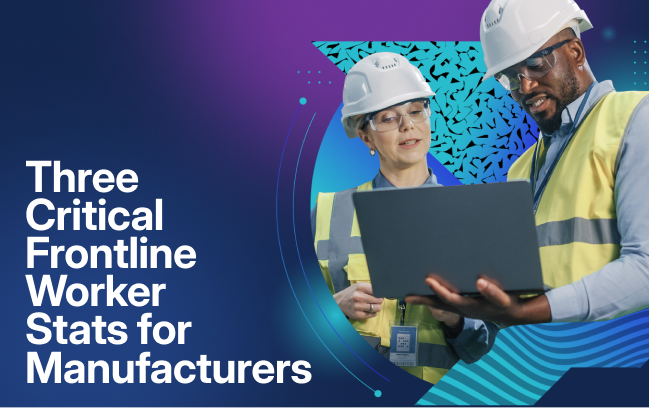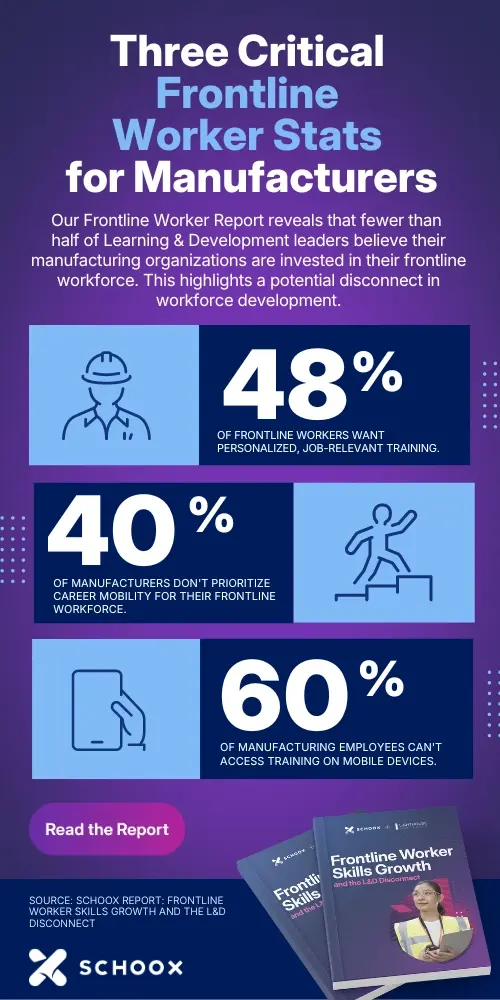August 20, 2024
2 Min. Read

The manufacturing industry is rapidly evolving. Workplaces once dominated by dirty factories, complicated assembly lines, and repetitive tasks are gradually transforming with modern technology and machinery, which require highly skilled professionals to operate.
While these changes improve safety and productivity across the industry, success still hinges on the training and career development opportunities manufacturing firms provide to their frontline workforces.
Research from Schoox and Lighthouse Research & Advisory highlights critical information about the state of learning and development in the manufacturing industry and the gaps between employee expectations and reality.

1. Personalized Learning
Safety is essential, but it shouldn’t overshadow job-specific skills development. Frontline employees in manufacturing are looking to work for companies that provide opportunities to gain more skills and advance in their careers. Our research shows nearly half of all frontline manufacturing professionals want more personalized training. Moreover, frontline workers want tailored learning programs that align with their roles.
By combining data on the skills required for specific jobs, individual employee performance, and business objectives, manufacturing companies can design personalized learning programs that foster a culture of continuous learning and improve business performance.
2. Career Development
Our research shows that 40% of manufacturers don’t prioritize career mobility for frontline workforces—a massive missed opportunity. Well-structured career paths can boost employee morale, reduce turnover, and create a stronger talent pipeline.
An LMS can support career development by offering a comprehensive catalog of courses, certifications, and interactive learning experiences. The right learning platform can help manufacturers create individualized learning plans that align with career progression and business goals, offer comprehensive training resources, track employee performance, and more.
Investing in frontline employees helps manufacturers build a loyal and high-performing workforce. Career development programs can include mentorship programs, coaching, opportunities for cross-training, and other perks to incentivize employees to keep their skills sharp and drive business growth.
3. Mobile Accessibility
Mobile connectivity transformed how people consume information, yet 60% of manufacturing employees lack access to training on their mobile devices. Since their work often requires them to be out on the field, operating machinery, or otherwise away from a desk, this lack of mobile accessibility presents significant productivity challenges and can also be dangerous for frontline employees.
Mobile learning gives employees on-demand access to training resources, important safety information, product tutorials, and more anywhere and on their own devices. It also allows for richer content and shorter bite-sized formats, which some learners may find easier to understand and more enjoyable.
The full Frontline Worker Skills Growth and the L&D Disconnect report from Schoox and Lighthouse Research & Advisory sheds more light on training accessibility, job-specific skill development, safety priorities, and career mobility opportunities for manufacturing professionals. Click below to access the report and get a better understanding of learning and development challenges in the manufacturing industry.



